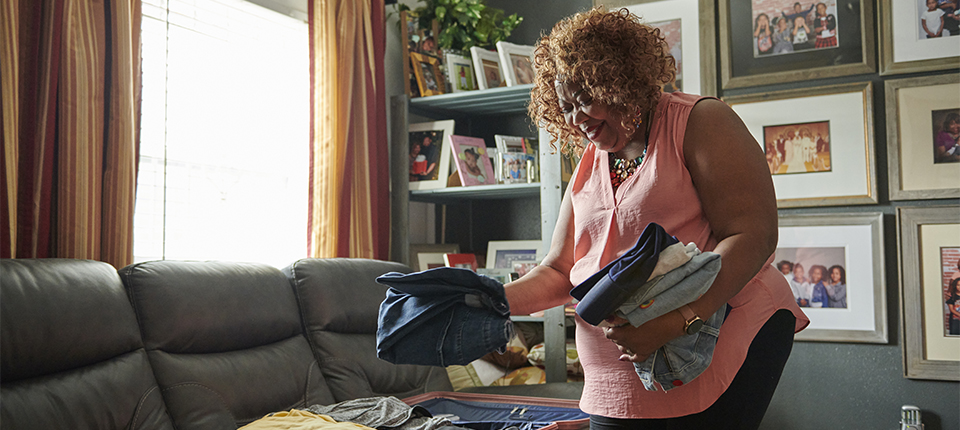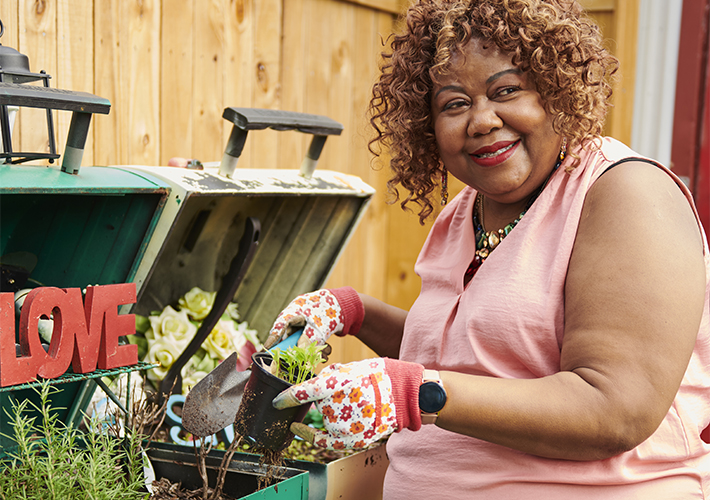Iris’s family, friends and doctors sprang into action to aid her through the process of receiving a pacemaker and navigating her new normal — one that, at the outset, consisted of missing out on many of the things she loves most.
“I was already too tired to go anywhere,” she said. “I didn’t see a quality of life. I didn’t want to go further than an hour away from my cardiologist to visit my family for fear that something would go wrong. Having 10-15 pounds of fluid buildup and going to the hospital became routine.”
“It was really depressing. You don’t understand why this is happening,” Iris said. “I get cancer, and I get a huge blessing by overcoming that. But now I need another blessing because overcoming cancer gave me this heart issue. It’s a lot to take on while still thinking about how you want to see your grandkids get married one day. You think about all of the things you could miss.”
To further complicate matters, Iris wasn’t eligible for a heart transplant. She learned that in order to be eligible for the transplant list, she had to be five years removed from cancer. She had only been cancer-free for two.
But her cardiologist was determined to find a solution that would give Iris her life back. He recommended our CardioMEMS HF System, a leading remote monitoring technology, tracking her pulmonary artery pressure (a valve near the heart). It allows Iris’s clinicians to intervene, if necessary, before her heart failure can worsen, no matter where in the world she is. The higher her pressure reads, the more fluid and more problems she may have to work with her doctors to overcome. Though she’d be the first patient in her area to receive the device, her cardiologist knew that the CardioMEMS HF System could keep her clinicians informed while keeping Iris on the go and out of the hospital. Iris didn’t hesitate. “I thought, if it keeps me away from the hospital, I’m in.”
After getting her CardioMEMS Sensor inserted, her team helped her connect the dots of data, diet and activity, learning how her daily choices can impact her heart while having a team of caregivers standing by.
“There’s nothing like knowing that someone else is watching over your health. The system tracked my numbers daily, and I’d get a call from my care team if my numbers were ticking up. I thought, ‘It was probably the movie popcorn I ate.’ I learned trigger foods, which made a huge difference.”
The CardioMEMS HF System’s remote monitoring gave her the dignity she deserves — to live life the way she wants, without fear of the next time she’d need immediate care. As Iris put it, “the more I understood the device and how it works, we were gone all the time. I see my cardiologist before I leave, and they alert me before anything escalates. It’s like it gave me my life back.”
The travel plans she’d postponed in the wake of her diagnosis finally came to fruition. Iris and her husband can cruise around the world, visit their grandchildren monthly and be present for big moments, like her nephew’s recent college graduation. “That’s something I never thought I’d be able to do.”
For Iris, her wildest dreams consist of the small things.
Being able to stand over her stove for hours without needing to pull up a chair, being able to watch her children and grandchildren grow up and getting to care for others again. She’s proud of her progress, and keeps her CardioMEMS HF System’s pillow front and center in her living room — a constant reminder of how it helped turn her once distant dream into her reality.

